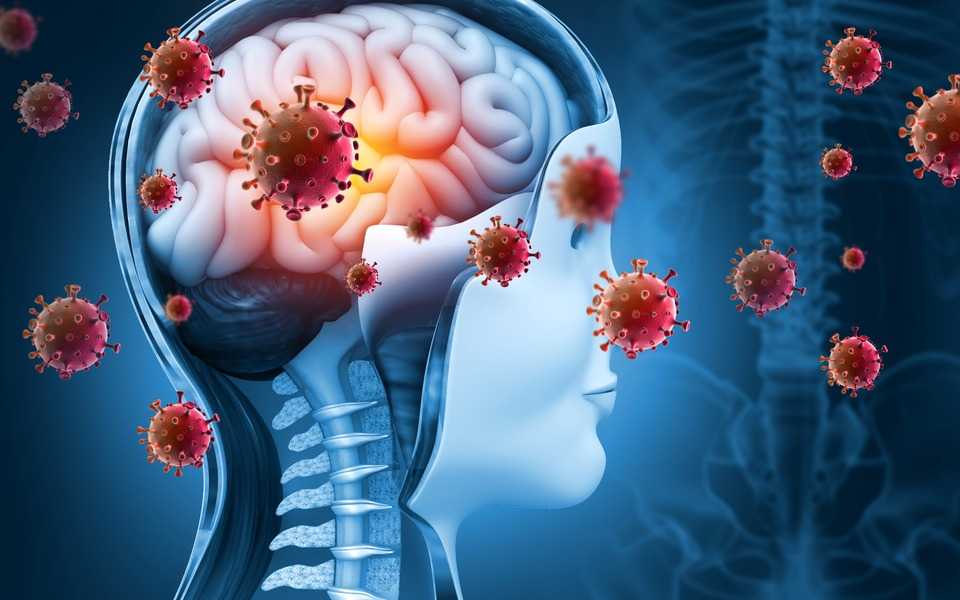
encephalitis


what is encephalitis?
Encephalitis is a serious medical condition characterized by inflammation of the brain. This condition can have various causes, including viral infections, autoimmune disorders, or other underlying health issues. Encephalitis can lead to a wide range of symptoms, from mild flu-like signs to severe neurological impairments. Early diagnosis and prompt treatment are crucial to minimizing long-term complications and ensuring a better prognosis.
recognizing symptoms for encephalitis
The symptoms of encephalitis can vary widely depending on its severity and underlying cause. Common initial symptoms include fever, headache, and general fatigue. As the condition progresses, more severe symptoms may develop, such as confusion, difficulty staying awake, seizures, sensitivity to light, and neck stiffness. In advanced cases, individuals may experience cognitive impairments, memory loss, or physical disabilities that affect their daily lives.
understanding causes and risks of encephalitis
The primary causes of encephalitis are divided into infectious and non-infectious origins. Viral infections, including herpes simplex virus, West Nile virus, and rabies, are among the most common culprits. Autoimmune encephalitis occurs when the body’s immune system mistakenly attacks healthy brain tissue. Several risk factors can increase the likelihood of developing encephalitis. Age plays a significant role, with young children and older adults being more vulnerable. A weakened immune system, due to conditions like HIV or immunosuppressive therapy, also heightens the risk. Geographic location and seasonal patterns can influence the prevalence of certain viruses that cause encephalitis, such as those transmitted by mosquitoes or ticks.
encephalitis prevention strategies
Preventing encephalitis involves reducing exposure to infectious agents and maintaining a healthy immune system. Vaccinations against diseases like measles, mumps, rubella, and Japanese encephalitis are effective preventive measures. Protecting against mosquito and tick bites by using repellents and wearing protective clothing is also crucial. Practicing good hygiene, such as frequent handwashing and avoiding close contact with sick individuals, can further lower the risk.
diagnosing and treating encephalitis
Encephalitis is diagnosed through a combination of clinical evaluation, imaging studies (MRI or CT scans), and laboratory tests such as cerebrospinal fluid analysis. Treatment depends on the underlying cause. Antiviral medications, such as acyclovir, are used for viral encephalitis, while corticosteroids may be prescribed to reduce inflammation in autoimmune cases. Supportive care, including intravenous fluids, oxygen therapy, and seizure management, is essential for stabilizing the patient.
the role of physiotherapy in recovery for encephalitis
Physiotherapy is a vital part of the recovery process for individuals recovering from encephalitis. The condition often leaves patients with physical or neurological impairments, such as muscle weakness, poor coordination, or balance issues. A physiotherapist can develop a tailored rehabilitation plan focusing on regaining muscle strength, improving mobility, and enhancing overall functionality. For patients with cognitive or speech difficulties, physiotherapy can work in conjunction with other therapies to address these challenges, promoting a comprehensive recovery.
portea’s commitment to encephalitis physiotherapy
At Portea, we specialize in providing personalized encephalitis physiotherapy services for individuals recovering from encephalitis. By delivering care at home, we ensure that our patients receive expert treatment in a comfortable and familiar setting, promoting a faster and more effective recovery.
We also specialize in providing expert physiotherapy services for post-surgical rehab, arthritis, neuro-rehab, sports injury, orthopaedic physiotherapy, physiotherapy for elderly and more – all delivered conveniently at your home.
Our dedicated team ensures you receive the personalized care you need for a smooth and successful recovery. Our experienced physiotherapists for encephalitis provide personalized care that focuses on rebuilding strength, mobility, and independence. With our support, patients can achieve a better quality of life in the comfort and convenience of their own homes.
With Portea, you receive expert encephalitis physiotherapy treatment at home, delivered by skilled physiotherapists dedicated to your recovery and well-being. Additionally, we offer a wide range of healthcare solutions, including doctor consultations,medical equipment, nursing care, and dedicated trained attendants ensuring personalized and high-quality care tailored to your needs.
portea’s other physiotherapy services based on medical conditions
faq’s
1.What is the main cause of encephalitis?
Encephalitis is most commonly caused by viral infections, such as herpes simplex virus, enteroviruses, or arboviruses transmitted by mosquitoes or ticks. Other causes include autoimmune responses or bacterial infections.
2.Do you ever fully recover from encephalitis?
Recovery from encephalitis varies. Many individuals recover fully, but others may experience long-term effects such as memory issues, fatigue, or neurological deficits. Early treatment improves outcomes.
3.Is encephalitis a brain injury?
Yes, encephalitis is a form of brain injury caused by inflammation in the brain tissue. This inflammation can lead to swelling, damage, and disruptions in brain function.
4.Is viral encephalitis curable?
Viral encephalitis is treatable but not always curable. Antiviral medications and supportive care can help manage symptoms, and recovery depends on the virus and the patient’s overall health.
5. What are the early signs of encephalitis?
Early signs include fever, headache, fatigue, confusion, nausea, and sensitivity to light. Severe cases may present with seizures, difficulty speaking, or muscle weakness.
6. How is encephalitis diagnosed?
Diagnosis involves a combination of medical history, neurological exams, brain imaging (MRI or CT scans), lumbar puncture for cerebrospinal fluid analysis, and blood tests to detect infections.
7. What are the long-term effects of encephalitis?
Long-term effects can include memory loss, difficulty concentrating, personality changes, seizures, speech impairments, or motor function difficulties, depending on the severity.
8. Who is at risk of developing encephalitis?
Infants, older adults, individuals with weakened immune systems, and people living in areas prone to certain viruses (e.g., mosquito or tick-borne) are at higher risk.
Doctor Consultation
Nursing
Physiotherapy
Trained Attendant
Elder Care
Mother & Baby Care
Lab Tests
Medical Equipment
Speciality Pharma
Critical Care






